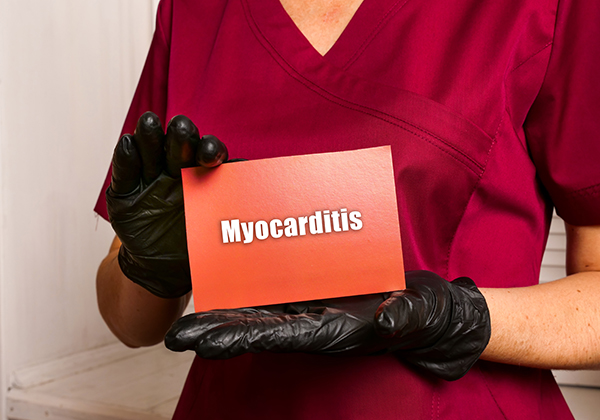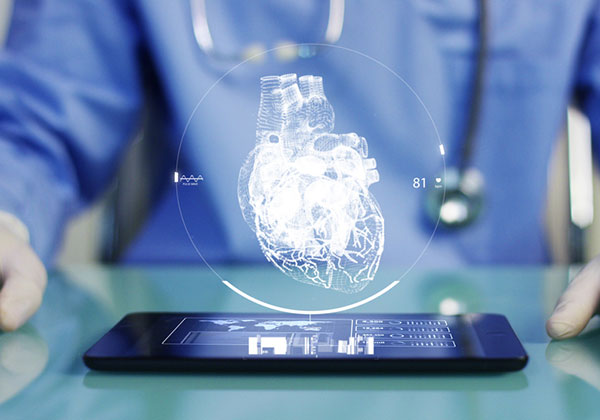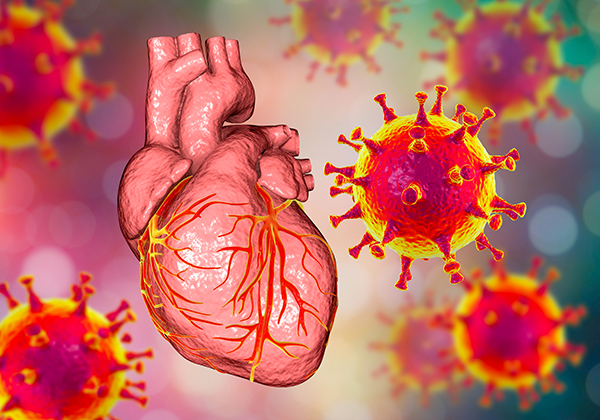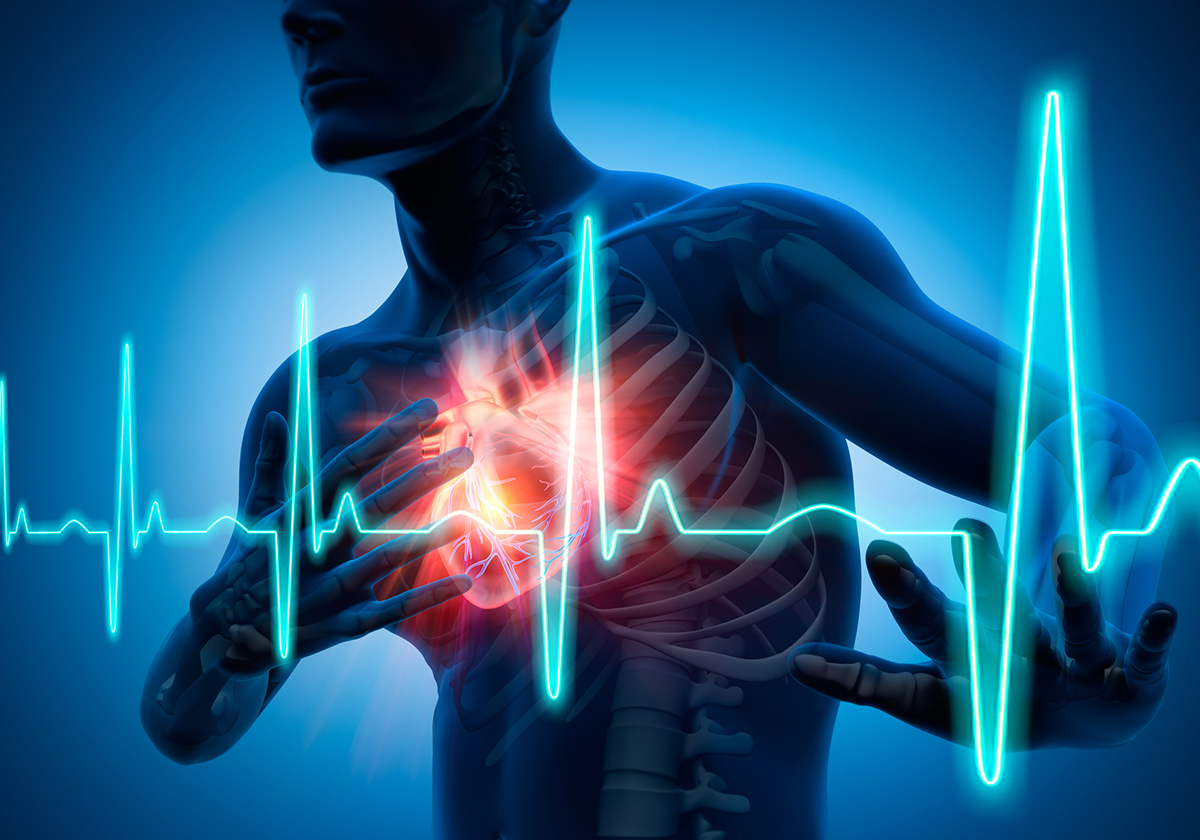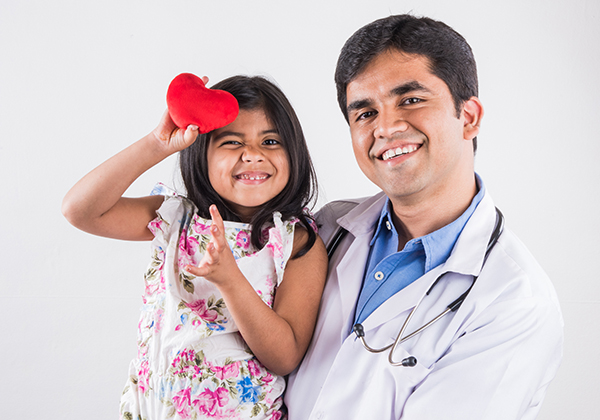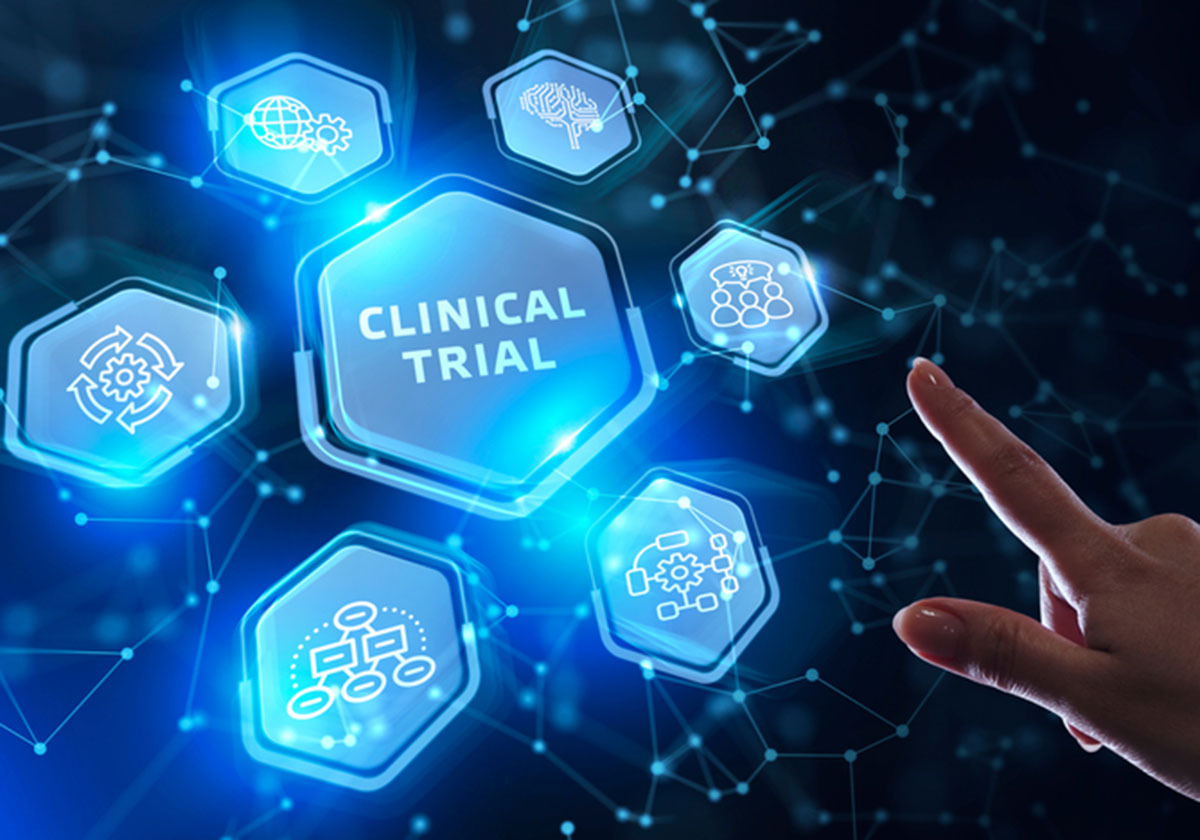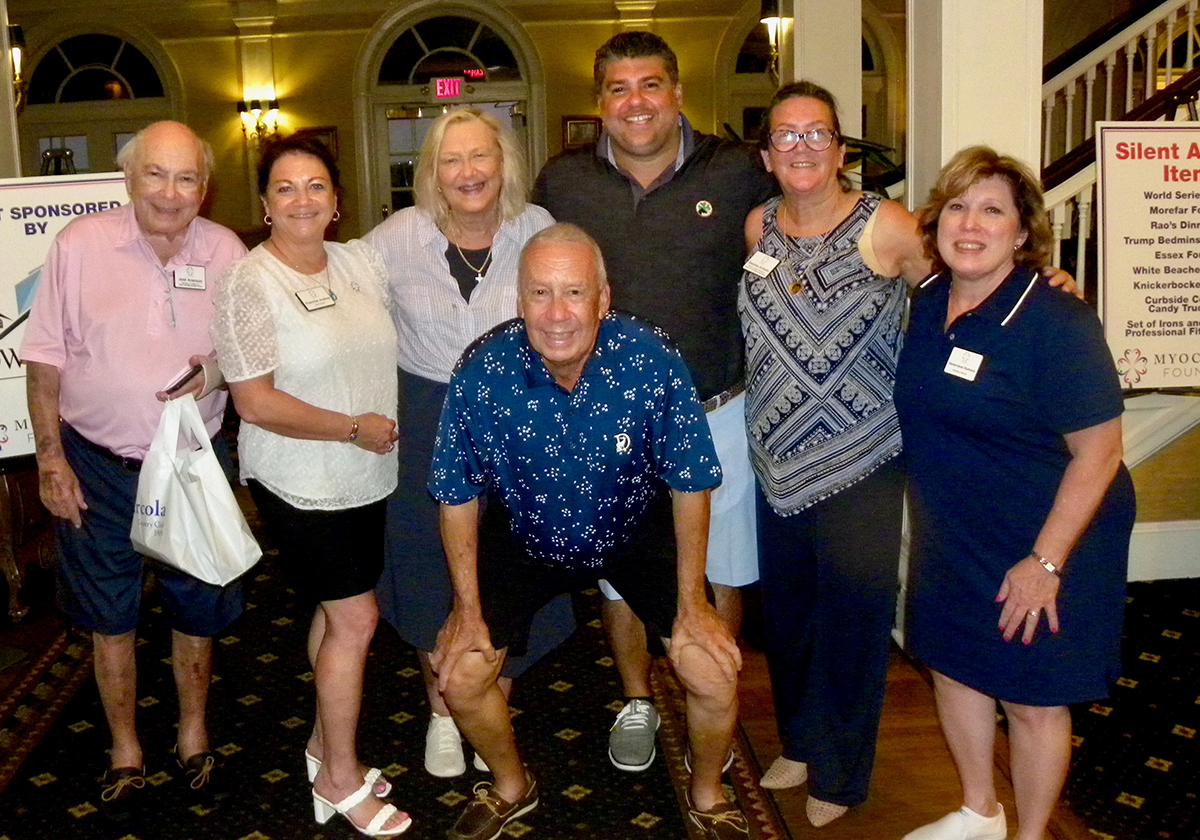(281) 713-2962
800 Rockmead Drive, Suite 155
Kingwood, TX 77339
[email protected]
Multimodal and Multidisciplinary Approach to optimize Diagnostic, Prognostic, and Therapeutic management of Patients with Nonischemic Cardiomyopathies and Arrhyhmogenic-Inflammatory phenotypes
Status: Recruiting
Location: IRCCS San Raffaele Scientific Institute
Conditions: IRCCS San Raffaele Scientific Institute
City/State:
Milan, Italy
Contact Information:
Giovanni Peretto, MD
+39 (022) 643-7482
[email protected]
Brief Summary:
- nonischemic cardiomyopathies (NICM) constitute a heterogeneous group of diseases characterized by distinct structural and functional myocardial abnormalities in the absence of obstructive epicardial coronary artery disease. To date, there is a huge lack of knowledge related to two main aspects of NICM, namely the “arrhythmogenic” and the “inflammatory” phenotypes, hereby named as AINICM. This study is multicenter, observational and both retrospective and prospective and aims to answer multiple unsolved questions in the field of AINICM:
- Improving the diagnostic workup
- Identifying disease-specific signatures
- Working our models for risk prediction
- Tailoring treatment strategies
- Allowing direct comparison among specific NICM subgroups, i.e. dilated, hypertrophic, nondilated, arrhythmogenic, restrictive, and other rare cardiomyopathies.
Role of Endomyocardial Biopsy and Etiology-based Treatment in Patients With Inflammatory Heart Disease in Arrhythmic and Non-arrhythmic Clinical Presentations: an Integrated Approach for the Optimal Diagnostic and Therapeutic Management
Status: Recruiting
Location: IRCCS San Raffaele Scientific Institute
Conditions: IRCCS San Raffaele Scientific Institute
City/State:
Milan, Italy
Contact Information:
Giovanni Peretto, MD
+39 (022) 643-7482
[email protected]
Brief Summary:
this multicenter registry, both retrospective and prospective, aims at answering multiple questions about myocarditis, with special attention to arrhythmic manifestations. Patients with myocarditis proven at least by endomyocardial biopsy and/or cardiac magnetic resonance will be enrolled, and characterized by means of multimodality diagnostic workup, both at baseline and during follow-up. The following unsolved questions will be addressed:
-to report the prevalence of arrhythmias in myocarditis
-to describe the relationships between arrhythmia features and myocardial inflammatory status
-to identify predictors of sudden cardiac death in acute myocarditis and chronic inflammatory cardiomyopathy with arrhythmic vs. non-arrhythmic clinical onset
-to investigate safety and effectiveness of immunomodulatory treatment strategies in arrhythmic and non-arrhythmic myocarditis
-to investigate safety and effectiveness of catheter ablation ablation to target myocarditis-associated arrhythmias
-to describe clinical presentation and arrhythmic outcomes of genetic forms of myocarditis
-to describe clinical presentation and arrhythmic outcomes of myocarditis associated with systemic rheumatologic diseases
Role of Novel ILR in the Management of PVCs
Status: Recruiting
Location: Centerpoint Medical Center, Kansas City Heart Rhythm Institute, Overland Park Regional Medical Center
Conditions: Centerpoint Medical Center, Kansas City Heart Rhythm Institute, Overland Park Regional Medical Center
City/State:
Overland Park, Kansas
Independence, Missouri
Kansas City, Missouri
Contact Information:
Donita Atkins
816-651-1969
[email protected]
Myocardial Injury and Dysfunction Associated with COVID-19 Vaccination
Status: Recruiting
Location: University of Colorado Anschutz Medical Campus
Conditions: University of Colorado Anschutz Medical Campus
City/State:
Aurora, Colorado
Contact Information:
Rachel Rosenberg, MS 303-724-4544 [email protected]
Natasha Altman, MD 303-724-4544 [email protected]
To determine whether there is microvascular thrombosis-associated myocardial damage and dysfunction vs. inflammation or other changes in patients who, following administration of SARS-CoV-2 mRNA vaccine, develop evidence of myocardial injury typically diagnosed as “myocarditis” based on cardiac MRI findings.
Further, the degree of inflammatory reaction vs. microthrombotic injury to cardiac myocytes from biopsied myocardial tissue will be compared with biopsied myocardial tissue from control hearts. mRNA expression of the ACE2 and ITGA5 binding targets of SARS-Cov-2 Spike protein encoded by mRNA vaccines, as well as expression of other genes that may contribute to post-vaccine pro-thrombotic and pro-inflammatory states including Coagulation Factor 3 (F3, also known as tissue factor), ACE, AGTR1 and AGT) or a dysfunctional cardiac state (NPPB as a marker of pathologic remodeling) will be examined as candidate genes. Additional, global gene expression is being measured by RNA-Seq and microarray.
Abatacept in Immune Checkpoint Inhibitor Myocarditis
Status: Recruiting
Location: "Beth Israel Deaconess Medical Center ", Allegheny-Singer Research Institution, Aurora St. Luke's Medical Center, Boston Medical Center, Brigham and Women's Hospital, Cedars-Sinai Medical Center, Cleveland Clinic, Columbia University Medical Center, Franciscan Health, Johns Hopkins University, Lehigh Valley Health Network, MD Anderson Cancer Center, Maine Health, Massachusetts General Hospital, Mayo Clinic, MedStar Health Research Institute - Georgetown University, Memorial Sloan Kettering Cancer Center, Moffitt Cancer Center, Robert Wood Johnson University Hospital, University of California Los Angeles, University of Chicago, University of Kansas Medical Center, University of Kentucky, University of Michigan, University of North Carolina Chapel Hill, University of Pennsylvania, University of Texas Southwestern, University of Utah, University of West Virginia
Conditions: "Beth Israel Deaconess Medical Center ", Allegheny-Singer Research Institution, Aurora St. Luke's Medical Center, Boston Medical Center, Brigham and Women's Hospital, Cedars-Sinai Medical Center, Cleveland Clinic, Columbia University Medical Center, Franciscan Health, Johns Hopkins University, Lehigh Valley Health Network, MD Anderson Cancer Center, Maine Health, Massachusetts General Hospital, Mayo Clinic, MedStar Health Research Institute - Georgetown University, Memorial Sloan Kettering Cancer Center, Moffitt Cancer Center, Robert Wood Johnson University Hospital, University of California Los Angeles, University of Chicago, University of Kansas Medical Center, University of Kentucky, University of Michigan, University of North Carolina Chapel Hill, University of Pennsylvania, University of Texas Southwestern, University of Utah, University of West Virginia
City/State:
Los Angeles, California
Kansas City, Kansas
Lexington, Kentucky
Boston, Massachusetts
Ann Arbor, Michigan
New York, New York
Chapel Hill, North Carolina
Bethlehem, Pennsylvania
Dallas, Texas
Houston, Texas
Salt Lake City, Utah
Washington D.C.
Tampa, Florida
Chicago, Illinois
Indianapolis, Indiana
Portland, Maine
Baltimore, Maryland
Rochester, Minnesota
New Brunswick, New Jersey
Cleveland, Ohio
Philadelphia, Pennsylvania
Pittsburgh, Pennsylvania
Morgantown, West Virginia
Milwaukee, Wisconsin
Contact Information:
Hannah K Gilman, MS
6177261019
[email protected]
This investigator-initiated randomized trial is being conducted to test whether abatacept, as compared to placebo, is associated with a reduction in MACE among participants who develop myocarditis after treatment with an ICI. Immune checkpoint inhibitors leverage the immune system to treat a wide variety of cancers. Myocarditis is an uncommon immune related adverse event (irAE) secondary to treatment with an ICI. The guideline recommended treatment for ICI myocarditis is cessation of the ICI and administration of corticosteroids. However, despite administration of corticosteroids, the rate of MACE with ICI myocarditis is high. Data from multiple independent international cohorts have shown that the rate of MACE with ICI myocarditis despite administration of corticosteroids ranges from 25-50%.For comparison, the rate of MACE with myocarditis unrelated to an ICI is <5%.
Abatacept is a selective co-stimulation modulator that inhibits T cell (T lymphocyte) activation by binding to CD80 and CD86, thereby blocking its interaction with CD28. This interaction provides a costimulatory signal necessary for full activation of T lymphocytes. In animal studies of ICI myocarditis, the administration of abatacept led to a reduction in cardiac immune activation and an increase in survival. In retrospective unpublished clinical data, the administration of abatacept to participants with ICI myocarditis on corticosteroids was associated with a reduction in risk of MACE. There are no prospective studies testing whether abatacept is effective among participants with ICI myocarditis. Therefore, the primary aim of this trial is to test in a randomized double-blind placebo-controlled study whether abatacept, administered concurrently with corticosteroids, is associated with a reduction in MACE among participants with recently diagnosed ICI myocarditis
MYTHS – MYocarditis THerapy with Steroids
Status: Recruiting
Location: University of California - San Diego, University of Florida, University of Texas - Houston, University of Virginia, Virginia Commonwealth University
Conditions: University of California - San Diego, University of Florida, University of Texas - Houston, University of Virginia, Virginia Commonwealth University
City/State:
San Diego, California
Richmond, Virginia
Houston, Texas
Charlottesville, Virginia
Gainesville, Florida
Contact Information:
Enrico Ammirati, MD, PhD
+39 026-444-7791
[email protected]
Acute myocarditis (AM) is a common condition characterized by histological evidence of inflammatory infiltrates associated with myocyte necrosis of non-ischemic origin. Clinical presentation spans from indolent form to cardiogenic shock also called fulminant myocarditis (FM). Patients can be stratified on the basis of their clinical presentation: patients with left ventricular (LV) ejection fraction (EF)<50% at first echocardiogram, and those with sustained ventricular arrhythmias, called complicated AM, have a worse prognosis compared with uncomplicated cases with preserved left ventricular ejection fraction (LVEF) and without arrhythmias. Among complicated AM, FM patients are those ones at the highest risk, presenting with severely impaired LVEF (generally <40%), and with need for inotropes and/or temporary mechanical circulatory supports (t-MCS).The pathogenesis of AM is felt to be due to an immune-mediated response against the myocardium.
As such, the overall objective is to evaluate the efficacy of pulsed IV corticosteroids therapy for the treatment of AM. It is proposed to test the efficacy of pulsed IV methylprednisolone in a single blind randomized controlled trial versus standard therapy on top of maximal support. The rationale for using pulsed corticosteroid therapy in the acute setting (within 3 weeks from cardiac symptoms’ onset) to reduce myocardial inflammatory infiltrates favoring recovery appears strong. Nevertheless, no trial has tested this hypothesis in the very acute phase of AM, despite the high mortality rate of this condition and the fact that AM mainly affects young patients.
Currently, no specific medications in the acute phase of lymphocytic AM are recommended beyond supportive therapy with inotropes and t-MCS. One Cochrane review on corticosteroids showed that almost all studies focused on inflammatory cardiomyopathies with 6 months of symptoms of heart failure (HF), and despite an improvement of cardiac function observed in low quality and small size studies, there was no improvement in the survival. In the past, only one study assessed the efficacy of immunosuppression in AM, the Myocarditis Treatment Trial (MTT) that reported no benefit from immunosuppression. Neutral results in the MTT could be ascribed to a delay in the initiation of this potentially effective treatment. Thus, 55% of patients started immunosuppressive therapy after 1 month from the onset of myocarditis, when the left ventricle (LV) was already dilated, as highlighted by a mean LV end-diastolic diameter (EDD) of 64 mm. It is expected that patients with FM have normal LV dimension during the acute phase despite severe LV systolic dysfunction. Based on a study from PI group, it was observed that FM patients recover most of the LVEF in the first 2 weeks after admission, with a median absolute increase of 30%. This finding further suggests that an immunosuppressive treatment should be started as soon as possible to demonstrate effectiveness. As little has changed in the medical treatment of this condition in the last 30 years, identification of effective drugs is needed.
Patients admitted to hospital for suspected AM complicated by acute HF/cardiogenic shock and LV systolic dysfunction will be screened for randomization.
Patients will be randomized in the two arms in a 1:1 ratio (Pulsed methylprednisolone therapy vs Placebo). Randomization will be performed with stratification by country.
The primary objective is to demonstrate a reduction in the rate of the primary composite endpoint on patients treated with pulsed methylprednisolone therapy vs. standard therapy and maximal supportive care.
Endpoints will be analyzed according to the following principles:
- Intention-to-treat (ITT) population
- Per Protocol (PP) population:
- “Safety population”
- A sensitivity analysis will also be performed on the previously defined populations after excluding patients (1) with histological diagnosis of giant cell myocarditis (GCM) or (2) who did not reach the final diagnosis of acute myocarditis based on CMRI or histology.
Sample size calculation: we plan to recruit a total of 360 patients, and we expect that about 20% of these patients or local physicians will refuse randomization. This would leave a total of 288 randomized patients (144 per arm).
Considering as relevant a reduction in the probability to reach the primary endpoint at 6 months from 25% in the standard therapy on top of maximal supportive care arm to 12% in the pulsed corticosteroid therapy arm (absolute risk reduction of 13% in absolute corresponding to a hazard ratio (HR) pulsed corticosteroid therapy vs. standard therapy of 0.44), the planned sample size will allow achieving a power of 0.80 with a one-sided log-rank test and an overall type I error of 0.025. The 25% figure considered for the standard therapy derives from a retrospective analysis of the patient’s cohort spanning over 20 years. The calculation includes an interim analysis planned at 50% recruitment (O'Brien-Fleming method). This interim analysis is accounted for in the sample size calculation with an alpha level of 0.001525 (final analysis 0.023475 alpha level) and is planned on the primary endpoint to assess a possible early treatment effect. No specific stopping rules are planned, given the multiplicity of aspects involved, but the report on safety will be reviewed by the Data and Safety Monitoring Committee (DSMC) will advise on possible aspects of the trial that need reconsideration.
Sample size adaptation: We will consider, based on the DSMC advise an adaptive approach to sample size in two regards:
- At the interim analysis, if the baseline incidence is lower than the expected 25%, the sample size calculation may be re-evaluated keeping the same HR of 0.44. For instance, if the observed incidence is 20%, maintaining the same HR of 0.44 (corresponding to an incidence of 9% in the pulsed corticosteroid therapy group, i.e. 11% in absolute risk reduction) the effective sample size needed to achieve 80% power should be increased to 360 patients. If the baseline incidence is higher than 25%, the planned actual sample size will achieve a power greater than 80% to detect a HR of 0.44 and no action will be taken.
- Based on the conditional power method, and on the DSMC advise, we may reconsider if a less promising result than HR=0.4444 is worth pursuing, given the current observed estimate. This case would require an increase in sample size that will be discussed in terms of relevance and feasibility. For example, if at the planned interim analysis, the estimated absolute risk reduction is at least 10% (HR=0.56) with 25% baseline, and the conditional power of meeting this 10% target (instead of the planned 13%) would be at least 60%, the sample size may be increased to reach the 80% desired power. In this case, the final effective sample size should be increased to 254 patients per arm to preserve an 80% power of demonstrating the less marked difference. The flexibility allowed in the sample size estimate will be considered based on the evaluation of the interim report by the DSMC and no data will be disclosed on interim treatment estimates to the study coordinator and steering committee.
The overall duration of the study from first patient first visit to last patient last visit will be 39 months. The follow-up will be up to 6 months and with additional 3 months to lock the database. Enrollment will last 30 months.
In parallel, there will be a prospective registry of patients that are eligible for the trial, but they are not randomized.
A second registry, called MYOCARDITIS REGISTRY will prospectively recruit all patients with acute myocarditis demonstrated by CMRI or EMB who are not eligible for randomization (not all centers will take part in this registry).
The study is supported by a grant from Italian Ministry of Health (GR-2019-12368506) and Lombardy Region.
Exemption from the investigational new drug (IND) regulations by FDA on August 2nd, 2021 (PIND: 15727)
EudraCT identifier: 2021-000938-34
Impact of CardiolRx on Myocardial Recovery in Patients with Acute Myocarditis (ARCHER)
Status: Recruiting
Location: Cleveland Clinic, Massachusetts General Hospital, MedStar Heart and Vascular Institute, Minneapolis Heart Institute Foundation, University of Pittsburgh Medical Center, Virginia Commonwealth University
Conditions: Cleveland Clinic, Massachusetts General Hospital, MedStar Heart and Vascular Institute, Minneapolis Heart Institute Foundation, University of Pittsburgh Medical Center, Virginia Commonwealth University
City/State:
Washington, DC
Miami Lakes, Florida
Boston, Massachusetts
Minneapolis, Minnesota
Cleveland, Ohio
Pittsburgh, Pennsylvania
Richmond, Virginia
Contact Information:
Andrea B Parker, MSc, PhD
+1 289.910.0862
[email protected]
Andrew Hamer, MD
+1 289.910.0380
[email protected]
Multi-center, double-blind, placebo-controlled, parallel group design. Patients with myocarditis will be screened and, if eligible, randomized within 10 days of the diagnostic CMR to CardiolRx or placebo.
The treatment period is 12 weeks; a last follow-up visit is scheduled one week after the last treatment, 13 weeks after randomization. Study assessments include Cardiac Magnetic Resonance imaging (CMR), ECG monitoring, the Kansas City Cardiomyopathy Questionnaire (KCCQ), the Columbia-Suicide Severity Rating Scale (C-SSRS) as well as physical exams and laboratory tests.
The primary and secondary outcome parameters are measured by CMR. Additional outcomes include clinical endpoints and changes in inflammatory and biomarkers.
Rationale:
Myocarditis is an acute inflammatory condition of the myocardium. Presentation of the disease may be fulminant and necessitate cardiac support, or even result in sudden cardiac death; milder cases are usually self-limiting but may progress to dilated cardiomyopathy with eventual end-stage heart failure. Other than treatments for associated heart failure there are no specific indicated treatments for myocarditis. CardiolRxTM, which is known to have anti-inflammatory properties, is being investigated to treat the underlying inflammatory process and thereby favorably modify acute myocarditis. The primary endpoints of the trial are cardiac magnetic resonance measures of left ventricular systolic function (ejection fraction and longitudinal strain) and myocardial edema (extra cellular volume) which have been shown to predict long term prognosis of patients with acute myocarditis.
Multi-center, double-blind, randomized, placebo-controlled, parallel group design. 1:1 randomization; treatment will be stratified within sites.
Patients diagnosed with acute myocarditis by a biopsy or a CMR will be screened within 10 days of the diagnostic CMR. Informed consent will be obtained at this point. For patients who have been diagnosed using an EMB, a CMR needs to be performed as well, which will be included in the informed consent form (ICF).Eligible patients will then be randomized within 10 days from the CMR assessment.
Baseline assessments include the following: Clinical assessment, including vital signs, ECG, 24-hr Holter, chest x-ray; Hematology and blood chemistry, NYHA classification, C SSRS and KCCQ. Frozen plasma will be retained for central analysis of hs-troponin, NT-proBNP and inflammatory markers.
Study treatment needs to be taken with food and will be initiated in the evening of Day 1, after all baseline assessments have been completed and the patient has been randomized.
Oral administration is as follows:
-
- Week 1 (p.m. dose of Day 1 to a.m. dose of Day 7): 2.5 mg/kg of body weight b.i.d. CardiolRxTM or placebo
- Week 2 (p.m. dose of Day 7 to a.m. dose of Day 14): 5 mg/kg of body weight b.i.d. CardiolRxTM or placebo
- Week 3 (p.m. dose of Day 14 to a.m. dose of Day 21): 7.5 mg/kg of body weight b.i.d. CardiolRxTM or placebo
- Week 4 to end of treatment period (p.m. dose of Day 21 to a.m. dose of last day of treatment period at week 12): 10 mg/kg of body weight b.i.d. CardiolRxTM or placebo
If the next higher dose after each study drug increase is not tolerated, the dose will be reduced to the previous tolerated dose.
Every week (before the next dose increase) the patient will be re-evaluated. This includes ECG monitoring at approximately 5 hours post-morning dose (time of Tmax) to surveil for deleterious effects on ECG intervals (particularly the QTc interval) and rhythm. Drug titration will be dependent on investigator or designate interrogation of the ECGs and the absence of new, clinically significant abnormalities on those ECGs.
Vital signs, concurrent medication and Adverse Events (AEs), including Serious Adverse Events (SAEs) will be recorded, blood chemistry including liver function tests, hematology as well as INR assessments will be carried out.
Final efficacy assessments (including a second CMR) will take place after 12 weeks of study treatment. A final safety assessment will take place after 13 weeks, 1 week after completion of study treatment.
Global Cardio Oncology Registry
Status: Recruiting
Location: Cleveland Clinic- Florida
Conditions: Cleveland Clinic- Florida
City/State:
Weston, Florida
Contact Information:
Diego Sadler, MD FACC 561-389-8833 [email protected]
Rohit Moudgil, MD PhD 216-445-1932 [email protected]
G-COR is the first Global Prospective Cardio-Oncology Registry. It is a multinational, multicenter prospective observational cohort registry, with the goal of collecting clinical, laboratory, imaging, demographic, and socioeconomic data to identify risk factors associated with increased incidence of cancer therapy related cardiovascular toxicity (CTR-CVT) in different settings and to derive and validate risk scores for cardio oncology patients treated in different geographic locations throughout the world.
G-COR will involve the collaboration from 124 hospitals from 24 countries that completed survey with sites demographics. It will evaluate cardiovascular disease in three distinct populations of cancer patients (hematological malignancies: lymphomas, leukemias, multiple myeloma; breast cancer patients; and patients treated with check point inhibitors immunotherapy).
G-COR will evaluate the cardiovascular impact of different cancer treatments in the above-described patients, and similarities and differences in diagnostic and treatment modalities as well as outcomes and the impact of socioeconomic factors and risk factors for toxicities in a large worldwide population.
G-COR will study the impact of cancer in CV disease in cancer patients treated at academic centers as well as in patients treated at community hospitals, through a systematic prospective data collection in a global digital platform.
G-COR is an IRB approved prospective registry, conducted with the logistical support of C5 Clinical Research Division and the Cardiovascular Outcomes Registries and Research (CORR) group at the Cleveland Clinic and have developed eCRFs with an extensive Red Cap Cloud platform.
G-COR Executive, Scientific and topic committees are led by North American, European, Latin American, Australian and Asian representatives from both academic and community centers.
The pilot phase of G-COR enrolls breast cancer patients only, and the global phase will include all three cohorts of patients (breast, Hem and ICIs).
The investigators have started enrolling patients for G-COR pilot phase with US centers, and will start the global international phase in 2023.
Cell Free DNA in Cardiac Sarcoidosis
Status: Recruiting
Location: University of Iowa
Conditions: University of Iowa
City/State:
Iowa City, Iowa
Contact Information:
Brenda Werner, RN 319-353-8862 [email protected]
Sarcoidosis is a multisystem granulomatous disease of unknown cause that can affect any organ in the body, including the heart. Granulomatous myocarditis can lead to ventricular dysfunction and ventricular arrhythmias causing significant morbidity and mortality. Immunosuppressive therapy (IST) has been shown to reverse active myocarditis and preserve left ventricular (LV) function and in some cases improve LV function. In addition, IST can suppress arrhythmias that develop due to active myocarditis and prevent the formation of scar.
The potential role of cardiac biomarkers, including brain natriuretic peptide (BNP), atrial natriuretic peptide (ANP), and cardiac troponins, in detecting active myocarditis is limited and studies have been disappointing. At present, there are no biomarkers to detect active myocarditis and the use of advanced imaging modalities (FDG-PET) for assessing and monitoring active myocarditis is not feasible or practical and is associate with high radiation exposure. As such, a biomarker that is reflective of active myocarditis and that is cardiac specific will assist physicians in assessing the presence of active myocarditis to guide therapeutic decisions and to assess response to therapy which can limit further cardiac damage.
Cell free DNA (cfDNA) are fragments of genomic DNA that are released into the circulation from dying or damaged cells. It is a powerful diagnostic tool in cancer, transplant rejection and fetal medicine especially when the genomic source differs from the host. A novel technique that relies on tissue unique CpG methylation patterns can identify the tissue source of cell free DNA in an individual reflecting potential tissue injury. We will be conducting a pilot study to explore the utility of this diagnostic tool to identify granulomatous myocarditis in patients with sarcoidosis.
Sarcoidosis is a multisystem granulomatous disease of unknown cause that can affect any organ in the body, including the heart. Sarcoidosis results from an immune reaction to an environmental exposure to yet unknown antigen(s) in a genetically predisposed individual. Autopsy studies have suggested that cardiac involvement with sarcoidosis occurs in up to 25% of cases, although more than half of these cases are sub-clinical. Cardiac sarcoidosis (CS) CS can lead to life-threatening heart failure, heart block, or rhythm disturbance and accounts for 13-25% of all sarcoidosis deaths in the USA. Therefore, although respiratory failure from lung sarcoidosis is the most common cause of sarcoidosis-related death in the USA, sudden death from cardiac sarcoidosis is a major concern owing to its acute nature. CS can present in a multitude of ways. It can be the initial manifestation of sarcoidosis in an individual not known to have sarcoidosis (a cohort beyond the aims of this proposal), patients can present with cardiac symptoms which can include palpitations, near-syncope or syncopal episodes which require a complete workup for potential CS and patients can be asymptomatic which is a sizable cohort considering the discrepancy between the expected prevalence of CS (25-40%) and CS that is detected clinically (5%).
Granulomatous myocarditis can lead to ventricular dysfunction and ventricular arrhythmias causing significant morbidity and mortality. Immunosuppressive therapy (IST) has been shown to reverse active myocarditis and preserve left ventricular (LV) function and in some cases improve LV function. In addition, IST can suppress arrhythmias that develop due to active myocarditis and prevent the formation of scar. Cardiac MRI (cMRI) and cardiac PET scans are currently used as complementary diagnostic tests for cardiac sarcoidosis, although with some limitations. Cardiac MRI with gadolinium has a sensitivity of 76-100% and specificity of 78-92% for the diagnosis of cardiac sarcoidosis, but its use is limited in patients with implantable cardiac devices. The presence of delayed enhancement on gadolinium-enhanced MRI is suggestive of scar tissue formation. 18FDG PET uses radioactive glucose to detect areas of active inflammation. The use of 18FDG PET as a marker of active granulomatous myocarditis should be interpreted carefully as several studies have shown the limitations of such protocols that force the myocardium to generate energy using free fatty acid metabolism exclusively. In addition, studies have also shown that the presumed pathological patterns, focal and focal on diffuse uptake, are also seen in healthy controls and patients with ischemic congestive heart failure who have undergone 18-FDG-PET12 and that a blood glucose level of >7.5mmol/L (>137mg/dl) at the time of the study results in absent or minimal myocardial FDG activity.
The potential role of cardiac biomarkers, including brain natriuretic peptide (BNP), atrial natriuretic peptide (ANP), and cardiac troponins, in detecting active myocarditis is limited and studies have been disappointing. At present, there are no biomarkers to detect active myocarditis and the use of advanced imaging modalities (FDG-PET) for assessing and monitoring active myocarditis is not feasible or practical and is associate with high radiation exposure. As such, a biomarker that is reflective of active myocarditis and that is cardiac specific will assist physicians in assessing the presence of active myocarditis to guide therapeutic decisions and to assess response to therapy which can limit further cardiac damage.
Cell free DNA (cfDNA) are fragments of genomic DNA that are released into the circulation from dying or damaged cells. It is a powerful diagnostic tool in cancer, transplant rejection and fetal medicine especially when the genomic source differs from the host. A novel technique that relies on tissue unique CpG methylation patterns can identify the tissue source of cell free DNA in an individual reflecting potential tissue injury. A recent paper utilized this technique to identify cardiac specific cfDNA in the bloodstream of patients with acute myocardial injury and sepsis reflecting cardiomyocyte injury/death. We will be conducting a pilot study to explore the utility of this diagnostic tool to identify granulomatous myocarditis in patients with sarcoidosis.
The ORCHESTRATE – Myocarditis Registry
Status: Not yet recruiting
Location: Kansas City Heart Rhythm Institute, Loma Linda University International Heart Institute, Montefiore Medical Center, Texas Cardiac Arrhythmis Institute at St. David's Medical Center
Conditions: Kansas City Heart Rhythm Institute, Loma Linda University International Heart Institute, Montefiore Medical Center, Texas Cardiac Arrhythmis Institute at St. David's Medical Center
City/State:
Loma Linda, California
Overland Park, Kansas
Bronx, New York
Austin, Texas
Contact Information:
Donita Atkins
816-651-1969
[email protected]

